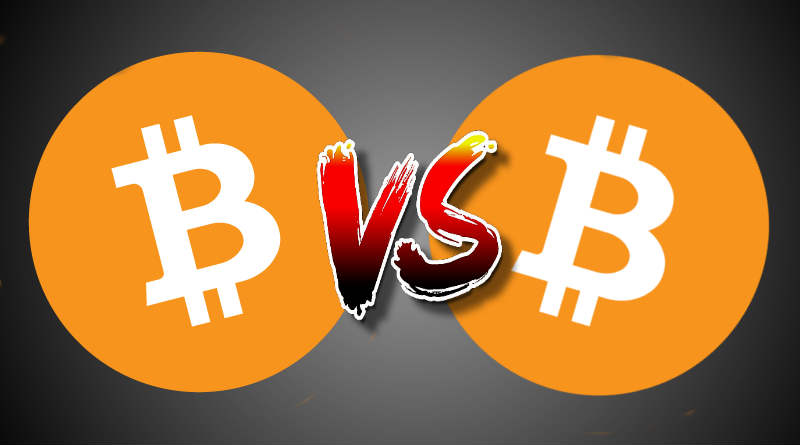Difference Between Bitcoin and Bitcoin Cash
Cryptocurrency enthusiasts often find themselves in a dilemma when choosing between Bitcoin and its fork, Bitcoin Cash. Understanding the nuances of these digital currencies is crucial for making informed decisions in the ever-evolving world of blockchain technology.
In the realm of cryptocurrencies, Bitcoin and Bitcoin Cash have emerged as dominant players. Let’s delve into the intricacies that set them apart and explore the factors influencing the choice between the two.

Understanding Bitcoin
Bitcoin, the pioneer of cryptocurrencies, was created in 2009 by an anonymous entity known as Satoshi Nakamoto. It operates on a decentralized blockchain, ensuring transparency and security in transactions. Bitcoin’s revolutionary technology and limited supply have contributed to its widespread adoption.
Bitcoin Cash Emergence
Bitcoin Cash, a fork of Bitcoin, emerged in 2017. The motivation behind this split was to address concerns related to transaction speed and scalability. This move aimed to enhance the efficiency of cryptocurrency transactions and improve the user experience.
Transaction Speed and Scalability
Bitcoin’s increasing popularity led to congestion on its network, resulting in slower transaction speeds and higher fees. Bitcoin Cash tackled this challenge by increasing the block size, allowing for more transactions to be processed simultaneously. This adjustment significantly improved transaction speed and scalability.
Block Size Debate
One of the primary differences between Bitcoin and Bitcoin Cash lies in their approach to block size. While Bitcoin maintains a limited block size to ensure decentralization, Bitcoin Cash opts for larger blocks, emphasizing transaction speed over absolute decentralization.
Segregated Witness (SegWit)
Bitcoin introduced Segregated Witness (SegWit) to optimize block space by separating transaction data and signature information. Bitcoin Cash, on the other hand, follows a different path, choosing not to integrate SegWit. This divergence impacts transaction processing and overall network efficiency.
Mining Algorithms
Bitcoin and Bitcoin Cash employ distinct mining algorithms. Bitcoin relies on the traditional proof-of-work (PoW), while Bitcoin Cash has implemented a different PoW algorithm. This variance in mining algorithms influences the speed and efficiency of transaction verification.
Community and Development
Bitcoin boasts a massive and established community, contributing to its continuous development. Bitcoin Cash, however, emphasizes community-driven initiatives, aiming for a more decentralized decision-making process.
Market Perception and Adoption
Investors often assess market perception and adoption rates when choosing between Bitcoin and Bitcoin Cash. Bitcoin’s longstanding dominance and widespread acceptance by merchants provide it with a significant edge in terms of trust and recognition.
Price Volatility
Examining historical price trends is essential for potential investors. While Bitcoin has exhibited significant price volatility, Bitcoin Cash has also experienced fluctuations in the market. Understanding these patterns is crucial for making informed investment decisions.
Future Outlook
Considering the ever-evolving nature of blockchain technology, it’s essential to explore the potential developments and innovations in both Bitcoin and Bitcoin Cash. Technological advancements may shape the future landscape of these cryptocurrencies.
Choosing Between Bitcoin and Bitcoin Cash
To make an informed decision, individuals must consider various factors, including transaction preferences, scalability requirements, and overall goals. Understanding the specific use cases and advantages of each cryptocurrency is crucial for selecting the most suitable option.
Real-world Applications
Bitcoin and Bitcoin Cash find applications in different scenarios. Bitcoin is often viewed as a store of value, akin to digital gold, while Bitcoin Cash focuses on efficient peer-to-peer transactions. Recognizing these distinctions helps users identify the most relevant use cases for each cryptocurrency.
Challenges and Risks
No investment is without risks. Security concerns, regulatory challenges, and market fluctuations pose potential risks for both Bitcoin and Bitcoin Cash. It’s vital for users to stay informed and assess the risks associated with each cryptocurrency.
Conclusion
In conclusion, the choice between Bitcoin and Bitcoin Cash ultimately depends on individual preferences and specific use cases. While Bitcoin remains a symbol of stability and widespread adoption, Bitcoin Cash addresses certain scalability issues, providing a viable alternative for users seeking efficient transactions.
FAQs
- Which cryptocurrency is more widely accepted by merchants? Bitcoin holds a broader acceptance among merchants globally due to its longer presence in the market.
- Can Bitcoin Cash be used as a store of value like Bitcoin? While Bitcoin Cash is primarily designed for transactions, some users may perceive it as a store of value, albeit to a lesser extent than Bitcoin.
- How do the transaction fees compare between Bitcoin and Bitcoin Cash? Bitcoin Cash generally offers lower transaction fees compared to Bitcoin, making it more attractive for everyday transactions.
- What role does the community play in the development of Bitcoin Cash? Bitcoin Cash relies heavily on a community-driven development model, allowing users to actively participate in decision-making processes.
- Are there any upcoming technological advancements in Bitcoin or Bitcoin Cash? Both cryptocurrencies are constantly evolving, with potential technological advancements on the horizon. Staying updated on developments is essential for investors.




